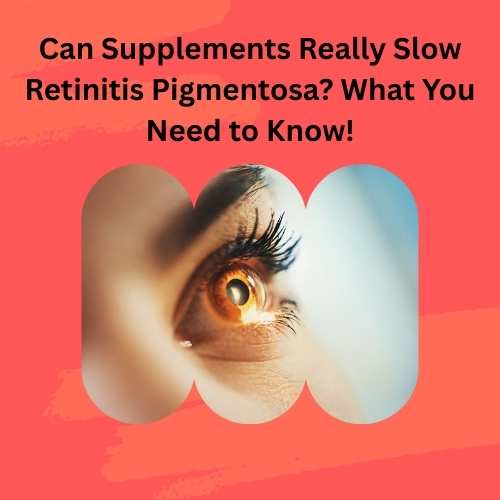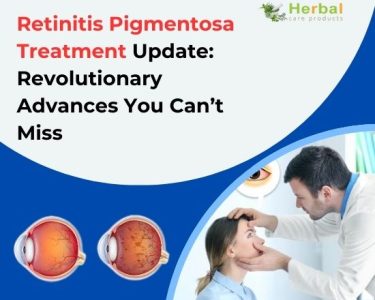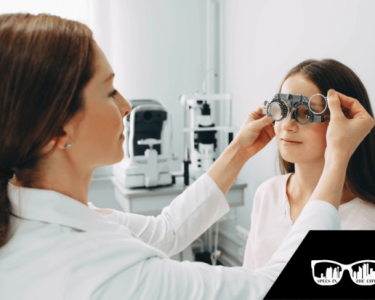Retinitis Pigmentosa (RP) is a group of rare genetic disorders that damage the retina and gradually lead to vision loss. While there is currently no cure for this condition, many people wonder if supplements can help slow down the progression of RP and preserve eyesight for longer.
What science says about using supplements for Retinitis Pigmentosa, highlight the most promising nutrients, and introduce the role of Herbal Supplements for Retinitis Pigmentosa in natural eye care.
What is Retinitis Pigmentosa?
Retinitis Pigmentosa affects the light-sensitive cells in the retina, primarily the rods and cones. It often begins with night blindness, followed by a narrowing of peripheral (side) vision, eventually leading to tunnel vision and, in some cases, total blindness.
Since it’s a genetic condition, traditional treatment options are limited. However, researchers and eye specialists are exploring how nutritional supplements may help protect retinal cells and delay degeneration.
Key Features of Retinitis Pigmentosa:
- Night Blindness: One of the earliest symptoms. People with RP often struggle to see in low-light or dark environments.
- Tunnel Vision: As the disease progresses, side (peripheral) vision fades, leading to a narrowing of the visual field.
- Blurry or Fading Central Vision: In advanced stages, the central vision may also be affected.
- Light Sensitivity: Some individuals become sensitive to bright light or experience glare.
What Causes RP?
Retinitis Pigmentosa is caused by genetic mutations passed down from parents. These mutations affect how the retina’s cells (especially rods and cones) function and survive. RP can be inherited in different ways:
- Autosomal recessive
- Autosomal dominant
- X-linked
The severity and progression of RP can vary depending on the genetic type.
Can Supplements Really Make a Difference?
While supplements cannot cure RP, certain nutrients have shown promising results in slowing its progression and supporting retinal health.
Supplements work by:
- Reducing oxidative stress
- Supporting photoreceptor cell function
- Enhancing blood flow to the retina
- Promoting cellular energy in retinal tissues
What You Need to Know About Retinitis Pigmentosa
Retinitis Pigmentosa (RP) is a rare genetic eye condition that causes slow, progressive vision loss. It affects the retina—the part of your eye that detects light and sends visual signals to the brain.
Key Facts to Know:
- Early Symptom: Trouble seeing at night (night blindness) is often the first sign.
- Progressive Vision Loss: Peripheral vision fades over time, leading to “tunnel vision.”
- Genetic Cause: RP is inherited and can be passed down through families in different ways.
- No Cure (Yet): There’s currently no cure, but research is ongoing into gene therapy, implants, and other treatments.
- Supplements May Help: Some vitamins and herbal supplements for Retinitis Pigmentosa may help slow progression and support retinal health.
- Support is Available: Low-vision aids, mobility training, and professional guidance can improve quality of life.
Takeaway
If you or a loved one is affected by Retinitis Pigmentosa, early diagnosis and consistent care are essential. Talk to your eye specialist about all options—including nutritional and herbal support—to help protect your vision for as long as possible.
Top Supplements Backed by Science
Here are some of the most commonly studied supplements for Retinitis Pigmentosa:
1. Vitamin A Palmitate
- May slow down retinal degeneration in some people with RP.
- Must be used cautiously due to potential liver toxicity.
- Always consult a doctor before use.
2. Omega-3 Fatty Acids (DHA)
- Found in fish oil; shown to support retina structure and reduce inflammation.
- Often combined with Vitamin A for better results.
3. Lutein and Zeaxanthin
- Carotenoids that protect the retina from light-induced damage.
- Act as natural filters for harmful blue light.
4. Coenzyme Q10 (CoQ10)
- Supports mitochondrial function in retinal cells.
- Can improve visual function and slow cell degeneration.
5. Zinc
- Essential for retina health and boosts the activity of antioxidants like Vitamin A.
Important Considerations Before Taking Supplements
If you’re thinking about adding supplements to your routine—especially for conditions like Retinitis Pigmentosa (RP)—it’s important to approach them thoughtfully. While many vitamins and herbs show potential benefits, supplements should always be taken with care and proper guidance.
1. Consult with a Healthcare Provider
Before starting any new supplement, always talk to your doctor or an eye specialist. They can help determine if the supplement is safe for you, especially if you’re already on medication or dealing with other health conditions.
2. Quality Matters
Not all supplements are created equal. Be sure to choose high-quality, clinically-tested supplements from reputable brands. Look for third-party testing or certifications to ensure the product’s purity and potency.
3. Dosage and Safety
Some supplements, especially Vitamin A, Zinc, and Omega-3s, can be harmful in high doses. Always follow the recommended dosage and avoid self-prescribing large amounts. Overuse of some vitamins or minerals can have adverse effects on your health.
Final Thoughts
While there is no cure for Retinitis Pigmentosa, science-backed supplements and Herbal Treatment for Retinitis Pigmentosa may offer hope in slowing its progression and preserving vision. These natural approaches, when used responsibly, can support retinal health and improve quality of life for those living with RP.
If you’re considering adding supplements or herbs to your routine, talk to your doctor or eye specialist to create a safe and effective plan tailored to your needs.




